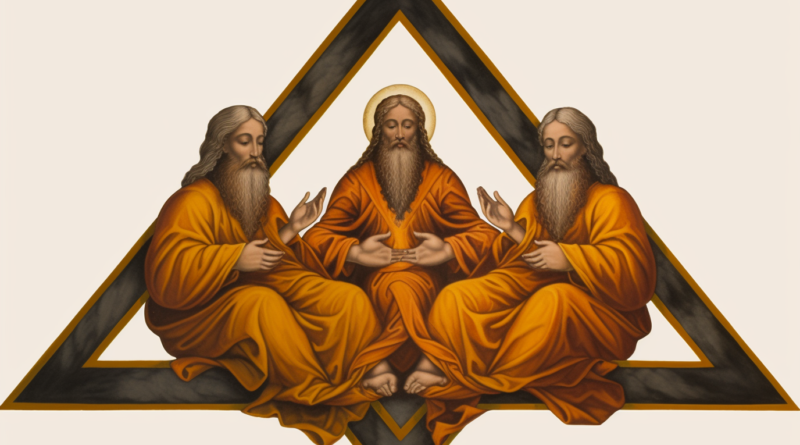Unmasking the Trinity (Part 2) – Jesus the Messiah
The theological concept of the unity of God is firmly rooted in the belief that God is one singular being, transcending the realms of time and space. This belief is central to several monotheistic religions, including Christianity, which inherited it from Judaism. However, the Christian understanding of God’s nature diverged significantly over time, leading to differing interpretations such as Trinitarianism and Unitarianism. Biblical Unitarianism, in particular, offers a compelling argument in support of God’s unity.
The essence of Biblical Unitarianism lies in its understanding of Jesus Christ, viewed not as God himself, but as a divinely appointed agent of God. This perspective sees Jesus as the Jewish Messiah, conceived miraculously by the Holy Spirit, making him the Son of God. He lived a sinless life, offered a perfect sacrifice for human sins, and following an unjust death, was raised to immortality. All these aspects of Jesus’ life and role are considered without attributing to him the status of being God.
To build this argument, one must consider how the Bible designates Jesus through various titles. These include Messiah, Lord, Saviour, King of Kings, among others. However, none of these titles is seen as equating Jesus to God. Instead, they reaffirm his status as the Son of God and as a unique agent of the Father’s will. Jesus, from the Biblical Unitarian perspective, is a mortal man, albeit one who lived without sin and was raised to immortality after his resurrection. This high view of Jesus aligns with the Jewish expectations of a Messiah and maintains the unity of God.
Critically, in the discussion around the divinity of Jesus, the term “theos” (Greek: “God”) is often taken to mean Jesus is God himself. But “theos” is a term with various interpretations that depend significantly on the context. Hence, any verse where “theos” is used in relation to Jesus cannot be simplistically taken as a declaration of his divinity. Further, verses often used to argue Jesus is God, such as Isaiah 7:14, 9:6, John 1:18, Acts 20:28, Romans 9:5, and Hebrews 1:8, among others, can be seen from alternative interpretations. These passages are not decisive due to textual variations, and contextual or grammatical complexities. Even scholars with Trinitarian leanings such as Dr. Daniel B. Wallace and Prof. Bart D. Ehrman have acknowledged these nuances.
Furthermore, examining the application of grammatical principles like Granville Sharp’s Rule, often employed in Trinitarian arguments, demonstrates limitations. Although the NET translation follows Sharp’s Rule rigidly, verses like Titus 2:13 and II Peter 1:1, which might imply Jesus’ divinity, are not without controversy. Therefore, the argument from Sharp’s Rule does not offer unequivocal proof of Jesus being God.
Looking beyond the New Testament, the Old Testament offers further insight. The Law of Moses taught basic principles of Christianity through typology and symbol, setting the stage for Jesus’ arrival. An example is Genesis 3:21, where God provides garments of skin to Adam and Eve. This act foreshadows the future sin-covering sacrifice of Jesus. This incident, and others like it, reinforce the continuity from Judaism to Christianity, strengthening the unity of God.
In conclusion, it is imperative to remember the restraint shown by the New Testament when referring to Jesus as ‘God.’ There are only a handful of passages which seem explicitly to identify Christ with God, and even these are disputed due to textual or grammatical uncertainties. Therefore, the unity of God is preserved under the Biblical Unitarian perspective. While acknowledging the significant role of Jesus Christ, it firmly maintains that there is but one God – the Father, transcendent and singular in his divinity.

